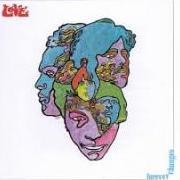-
Recently Browsing 0 members
- No registered users viewing this page.
-
Latest Activity
-
By kavyashree6 · Posted
These challenges, ranging from internal conflicts to external pressures, require adept handling and strategic resolution. Organizational issues training equips employees and leaders with the skills and knowledge to identify, address, and mitigate these challenges effectively. This blog explores the significance of organizational issues training and how it can fortify an organization against various hurdles. Understanding Organizational Issues Organizational issues encompass a wide range of problems that can affect the efficiency, culture, and performance of a company. Common issues include: Communication Breakdowns: Miscommunication or lack of communication can lead to misunderstandings, errors, and decreased morale. Conflict Management: Interpersonal conflicts or departmental disputes can disrupt workflows and create a toxic work environment. Change Resistance: Employees may resist changes due to fear of the unknown, lack of trust, or inadequate communication. Employee Engagement: Low levels of engagement and motivation can lead to decreased productivity and higher turnover rates. Operational Inefficiencies: Inefficient processes and systems can waste resources and reduce profitability. Cultural Misalignment: Misalignment between organizational culture and business objectives can impede strategic initiatives. The Role of Organizational Issues Training Organizational issues training focuses on equipping employees with the tools and techniques needed to navigate and resolve these challenges. Here’s why it is crucial: 1. Enhancing Communication Skills Effective communication is the cornerstone of a healthy organization. Training programs can help employees develop active listening skills, clear articulation, and the ability to provide and receive constructive feedback. Improved communication reduces misunderstandings and fosters a collaborative environment. 2. Developing Conflict Resolution Abilities Conflict is inevitable in any organization, but it doesn’t have to be detrimental. Training equips employees with conflict resolution skills, such as negotiation, mediation, and problem-solving techniques. This helps in transforming conflicts into opportunities for growth and innovation. 3. Facilitating Change Management Change is a constant in today’s business world. Training programs on change management help employees understand the dynamics of change, develop adaptability, and learn strategies to cope with and support organizational changes. This reduces resistance and enhances the successful implementation of new initiatives. 4. Boosting Employee Engagement Engaged employees are more productive, committed, and likely to stay with the company. Training on employee engagement strategies can help managers and leaders create a motivating work environment, recognize and reward contributions, and build strong, supportive teams. 5. Improving Operational Efficiency Training in lean management, process improvement, and project management can help employees identify inefficiencies and develop solutions to streamline operations. This leads to better resource utilization, reduced costs, and improved overall performance. 6. Aligning Organizational Culture Training programs can reinforce the organization’s values, mission, and vision, ensuring that all employees are aligned with the cultural and strategic goals of the company. This alignment fosters a cohesive work environment where everyone works towards common objectives. Key Components of Organizational Issues Training 1. Communication Workshops Interactive workshops focusing on verbal and non-verbal communication, active listening, and feedback techniques help employees communicate more effectively and collaboratively. 2. Conflict Management Seminars Seminars that cover conflict resolution styles, negotiation tactics, and mediation processes provide employees with practical tools to handle disputes constructively. 3. Change Management Courses Courses that address the psychology of change, strategies for managing resistance, and frameworks for leading change initiatives help employees navigate transitions smoothly. 4. Engagement and Motivation Training Training programs that focus on motivational theories, employee recognition strategies, and team-building activities boost morale and foster a positive work environment. 5. Process Improvement Training Training in methodologies such as Lean Six Sigma, Agile, and Total Quality Management (TQM) empowers employees to enhance operational efficiency and drive continuous improvement. 6. Cultural Alignment Programs Programs that emphasize organizational values, ethical standards, and cultural integration help employees align their behavior with the company’s strategic goals. Implementing Effective Organizational Issues Training 1. Needs Assessment Conducting a thorough needs assessment helps identify the specific organizational issues that need to be addressed. This ensures that training programs are relevant and targeted. 2. Tailored Training Solutions Customized training programs that reflect the unique context and challenges of the organization are more effective than generic ones. Tailored solutions ensure that the training addresses specific needs and objectives. 3. Interactive and Experiential Learning Interactive workshops, role-playing, and real-world simulations enhance engagement and retention. Experiential learning methods provide practical experience in dealing with organizational issues. 4. Continuous Improvement Organizational issues training should be an ongoing effort. Regular refresher courses, advanced training sessions, and continuous learning opportunities help employees stay updated and improve their skills over time. 5. Evaluation and Feedback Assessing the impact of training programs through feedback, surveys, and performance metrics helps in refining and improving the training initiatives. Continuous evaluation ensures that the training remains effective and relevant. https://www.sprintzeal.com/ -
its probably good that you havent done glasto before. glasto with a kid is all you will know. after doing it alone glasto with a kid is a lot like missing glasto lol. you have to be mentally prepared that its their show. i was pulling my hair out at times but afterwards i was glad i did it. priceless
-
Dua Lipa 125 Coldplay 29 (-1) LCD Soundsystem 145 Little Simz 111 IDLES 80 The National 195 The Streets 135 Jungle 100 Jessie Ware 110 Justice 261 Heilung 145 Masego 110 Nia Archives 125 Jamie xx 90 Sampha 105 Sleaford Mods 88(+9) Romy 130 Fontaines D.C. 204 London Grammar 100 King Krule 50 Orbital 200
-
I’m taking my kids for the first time this year. Is it disrespectful to others if you have your kids on your shoulders during gigs? I assume not seen as some people have adults on shoulders. And flags pretty much block out the view on the main stages anyway. But I just wanted to know other people’s thoughts on this? is it less acceptable in Woodsies or one of the smaller tents? I’ve been stood behind Stephen Merchant at a gig before. Couldn’t see a thing.
-
-
Latest Festival News
-
Featured Products
-

Monthly GOLD Membership - eFestivals Ad-Free
2.49 GBP/month
-
-
Hot Topics
-
Latest Tourdates














Recommended Posts
Join the conversation
You can post now and register later. If you have an account, sign in now to post with your account.